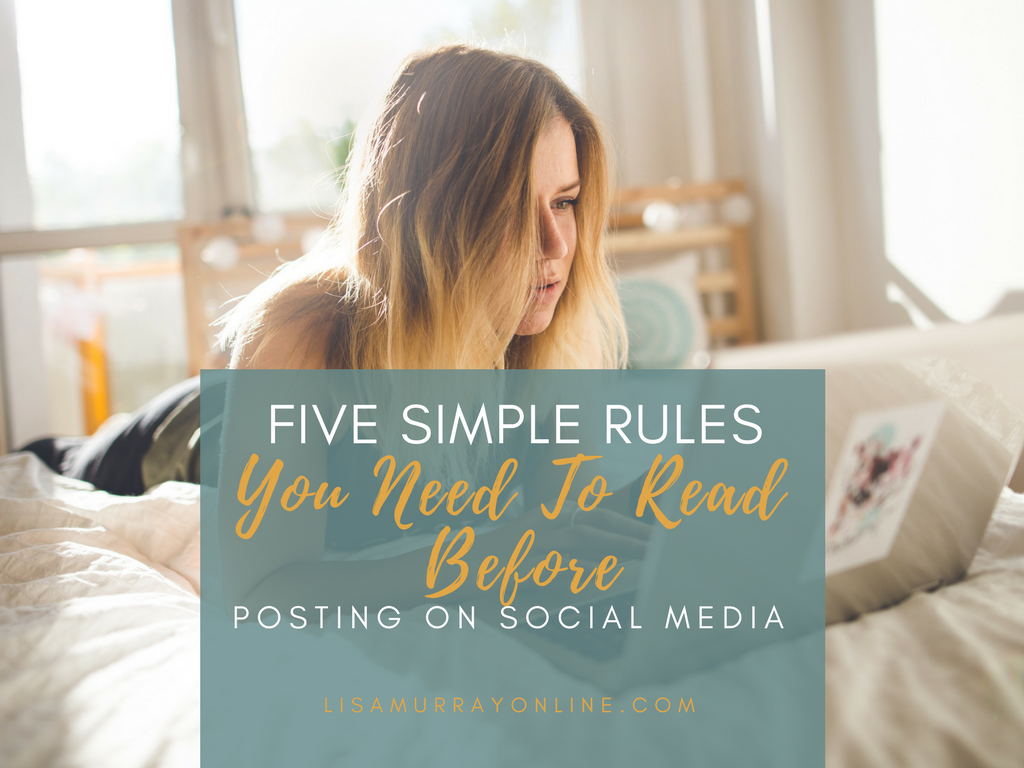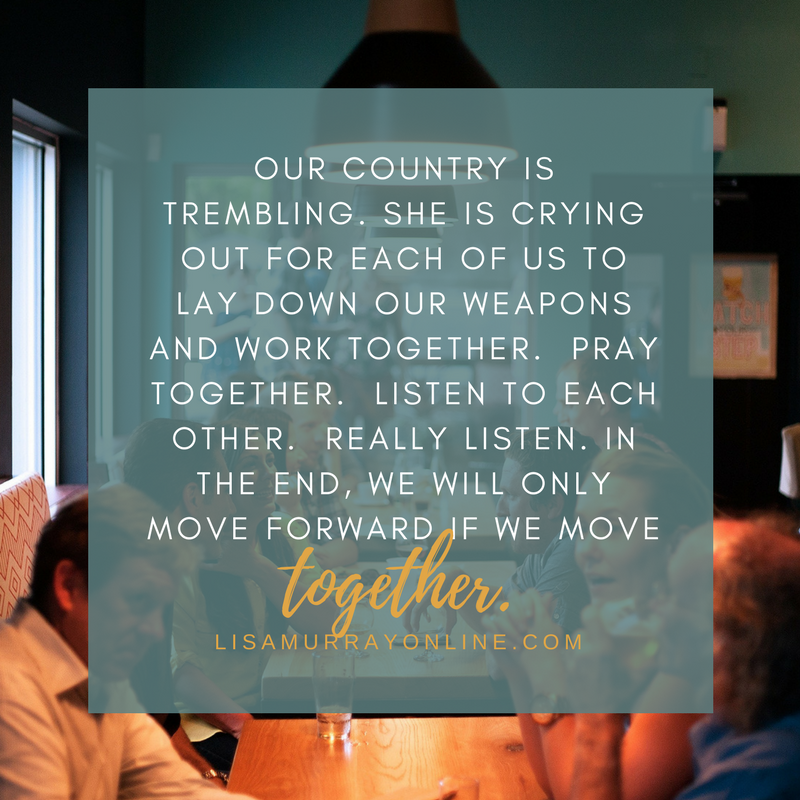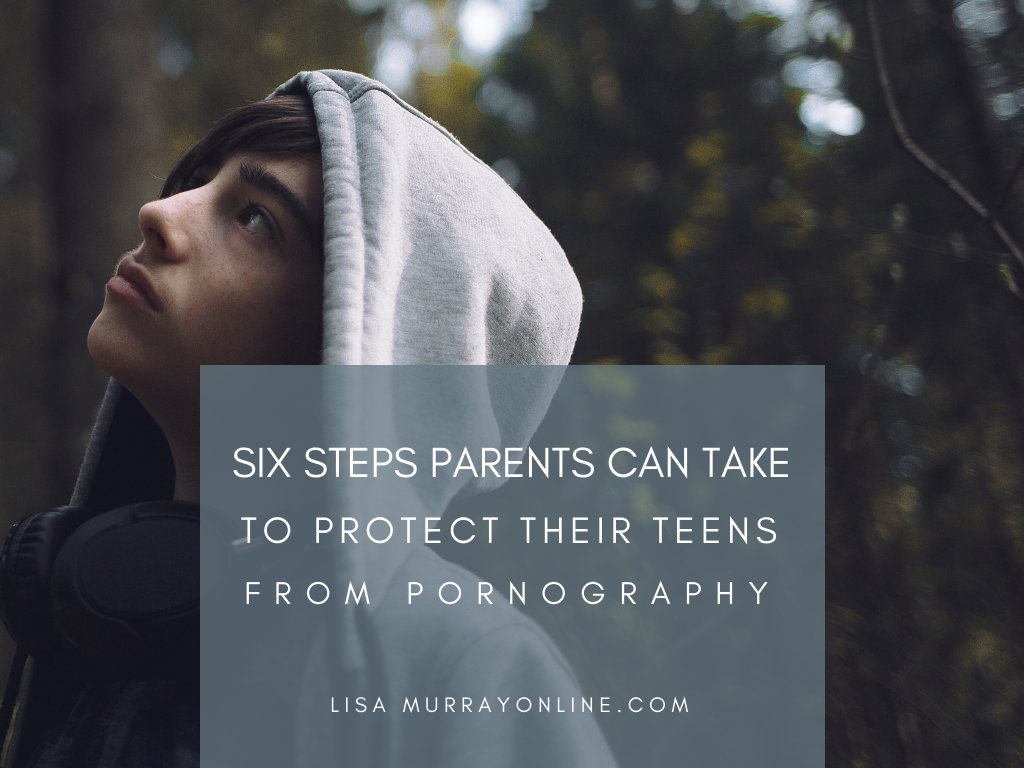Girlfriends can be the best back-seat drivers for each other’s relationship issues. We can effortlessly diagnose any situation and tell our friend exactly what she should do, why she should do it, and when. Yet, the bravest and boldest of us can be rendered completely helpless, confused, and/or paralyzed when it comes to evaluating the health of our own relationships (or lack thereof).
Not able to see the forest for the trees, we find ourselves second-guessing our instincts, questioning our sanity, and compromising our self-respect because we long to make our relationships work.
While each relationship has a different dynamic, style, and personality based on the two individuals, there are some basic qualities in relationships that must exist for the relationship to be healthy, for it to be a haven where two people can thrive.
I’ve put together a list of qualities to help us begin to identify healthy qualities versus toxic qualities so that you can begin to assess the health of your relationships.
Here are ten qualities that can help you tell if your relationship is healthy:
Safety
Healthy relationships are safe places where two people with two different personalities, backgrounds, can come together and enjoy their differences. We all need to feel safe – physically safe and emotionally safe. Safe to share our thoughts and feelings. Safe to share our fears and wounds. Safe to share our hopes and dreams for the future.
Safe people accept us, they support us, they listen to our thoughts and feelings, they encourage us on our journey. They don’t listen to correct, criticize, or condemn. They never belittle, call us crazy, or make us feel less-than. There is no manipulation or intimidation. Relationships with bullies are never safe relationships.
Trust
Trust is the single greatest factor in determining relationship success or failure. Trust, according to Merriam Webster Online Dictionary is, firm belief in the reliability, truth, ability, or strength of someone or something.
Trust allows us to listen and accept each other’s words and actions based on a consistent pattern of faithfulness, reliability, and respect. Trust allows us to be vulnerable with our spouses as well as to give them the benefit of the doubt.
Are you able to give your spouse the benefit of the doubt? If not, why? Do you have faith in their words and/or actions? Is your partner trustworthy?
If you answered no to any of these, there is some level of toxicity in your relationship. Seek out professional help to work through these areas and resolve them so that you can grow in your trust for your mate.
Good Communication
Good relationships usually have good communication. Bad relationships almost always have terrible communication. You and your partner should be able to share your thoughts, feelings, wants, and needs, both openly and effectively. Neither of you should feel timid about asserting yourselves in calm, respectful, appropriate ways.
As much as it involves speaking, healthy communication also involves listening. Active listening always means that you are curious to know, to hear, to understand what your partner is saying, what their viewpoint is, whether you agree with them or not. Listening well doesn’t always mean agreeing. We can have vibrant relationships and learn to enjoy each other while respecting our differences.
Communication in toxic relationships tends to escalate quickly and easily. There is no room for differences. Messages can be caustic, unkind, disrespectful, and blaming. Admiration, kindness, and gratitude are rarely spoken, but messages of criticism, contempt, and ridicule are rampant. Issues are rarely resolved in this kind of toxic environment.
Psalm 19:14 (NIV)May the words of my mouth and the thoughts of my heart be pleasing to you, O Lord, my rock and my redeemer.
Proverbs 17:27 (NIV) A truly wise person uses few words; a person with understanding is even-tempered.
Proverbs 12:18 (NIV)Some people make cutting remarks, but the words of the wise bring healing.
Mutuality
Mutuality means that two people are mutually invested in the relationship. In healthy relationships, there is a certain level of commitment to each other and to the relationship as well as an equitable balance of giving and receiving.
Tina Tessa, PhD., LMFT, states,
Mutual love, however, means you can feel secure that you both love and are loved equally, and are approximately equal in your energy for staying together.
If either you or your partner is always ready to check out for a better opportunity, someone is probably not prioritizing the relationship. If the relationship road always seems to run one way leaving you to draw the short end of the stick, the other person is potentially not as emotionally invested as you, which may be a signal that the relationship is toxic.
Respect
Love without respect can be dangerous. It means that one person must abandon themselves to the wants/needs of the other. It is consuming, depleting, and toxic to the individual as well as to the relationship.
Respect allows both people in the relationship to see the other as a separate entity —with a unique identity, thoughts/feelings, beliefs and values, wants and needs. If a relationship is respectful, we are able to see the other person as a person, not an extension of ourselves, nor a possession or a reflection of us in any way. Healthy relationships are fertile environments where thoughtfulness, kindness, and consideration for our spouse abounds.
Healthy people listen to their spouse’s needs, desires, and concerns. They offer empathy to their partner instead of trying to fix their partner or change them. Learning to speak words of acknowledgment, appreciation, and gratitude not only for what your partner does, but for who your partner is, shows the ultimate respect for them and for the relationship.
Matthew 7:12 (ESV)
So whatever you wish that others would do to you, do also to them, for this is the Law and the Prophets.
Romans 12:10 (ESV)
Love one another with brotherly affection. Outdo one another in showing honor.
Philippians 2:3 (ESV)
Do nothing from rivalry or conceit, but in humility count others more significant than yourselves.
Shared Power
While a relationship doesn’t have to be exactly 50/50 in order to be healthy, it should have a balanced power differential. Trying to control or dominate your spouse through subtle or not-so-subtle maneuvers reveals a toxic dynamic that can destroy a relationship.
Instead of focusing your energy on seeking power over to having power with will build strength, safety, and trust. Interestingly, research shows that shared decision making between partners actually leads to better decisions.
Relationships should be safe places where both parties can be heard, considered, where decisions are shared. Scripture describes mutual submission, sacrificial love, not dictatorial commands.
Why else would husbands be commanded to love their wives as Christ loved the church? (Ephesians 5:25, NIV) The best relationships are ones where there are two excited yeses to whatever decisions need to be made. Period.
Openness, honesty, and accountability
Are there secrets in your relationship? Hidden areas, accounts, technology, or places where you or your spouse have no access? If so, you are in the danger zone.
My Momma used to tell me, People who have nothing to hide, hide nothing. If you or your partner is withholding information, if they are secretive, vague, or deceptive in their communication to you, there is usually a reason. And it is usually not good.
Openness, honesty, and accountability create a solid foundation for a couple to build safety, respect, and trust with each other so they can work through life’s challenges successfully. If you or your partner have a hard time admitting mistakes, can never own responsibility for words and actions, or have a hard time apologizing, your relationship is likely toxic.
Colossians 3:9 (ESV)
Do not lie to one another, seeing that you have put off the old self with its practices.
Proverbs 11:3 (ESV)
The integrity of the upright guides them, but the crookedness of the treacherous destroys them.
Individuality
Healthy relationships have room for both partners to grow and flourish as individuals. Shared interests and common recreational activities are necessary for a relationship to grow, yet, if there is only room for the relationship, both partners will wither and the relationship will suffocate.
One article in Psychology Today tells couples, Feeling and demonstrating interest in each other's growth and development as individuals builds greater connection and sustained energy -- emotionally, relationally, sexually, and spiritually. All are intertwined.
Explore individual hobbies and interests. Allow your partner to engage in their own interests as well. Avoid getting lost in the relationship or cultivating a dependence on the relationship to fill needs that God and/or you were meant to fill. Our relationships are a beautiful part of our lives. They simply cannot be all of our lives.
Cooperation
In an age of ‘me-first’ attitudes, cooperation can be a rare commodity in relationships. One of the most beautiful pictures to me of marriage is the metaphor Scripture uses of being yoked. With a yoke, two partners are joined together side-by-side. One is not ahead, the other not behind. In order to move forward effectively, they must work things out and cooperate if they are going to pull together.
Cooperation is a natural extension of mutuality. Each partner wants the best for the other. Each works to find healthy compromises, and better still, to collaborate together on win-win solutions to the challenges they face. If you or your spouse has a demanding, entitled attitude, if tempers explode any time someone doesn’t get their way, if either wants the other to lose in order to win, the relationship is likely toxic.
Proverbs 14:29 (NIV)
Whoever is patient has great understanding, but one who is quick-tempered displays folly.
Ecclesiastes 7:8-9 (NIV)The end of a matter is better than its beginning,and patience is better than pride. Do not be quickly provoked in your spirit, for anger resides in the lap of fools.
Fun
Relationships need fun in order to flourish. While there will always be responsibilities and needs to attend to, healthy couples find time to play together, to laugh together.
It’s not easy. The stresses of life and irritations within the relationship can always leave us sidelined, if we allow them. Still, we can be intentional with date nights, with walks together, with getaway weekends. When one person always finds an excuse to avoid alone time and rarely makes time for their partner, to relax and unwind, it will lead to distance and disconnection.
The truth is, there is no perfect relationship. Most likely, there are areas that are strengths in your relationship and areas of weakness or growth. Yet, if you identify multiple areas that are toxic, I highly recommend you seek out a professional Christian therapist that can help you and your spouse work through these areas.
Even if your mate is not willing to see a therapist, go by yourself anyway. Any steps of health are ultimately steps toward health. You will gain support, encouragement, tools, direction, and strength for your journey.
Our relationships are the canvas for each of us to learn and grow. Don’t ignore the warning signs. We can make choices for health that will bless our relationships and make them the best they can be.
About This Community
Don't we all want a little peace? My heart for this community is to provide just that - a needed refuge from all the burdens that weigh us down, some encouragement and inspiration to keep us weary travelers moving forward on our journeys, and some practical advice to help each of us navigate the challenges of life and relationships. Whether in our parenting, our marriages, our faith, or the broken places in our hearts, this place is for anyone who dares to reach beyond the hopelessness that surrounds us and embrace a lifestyle of emotional abundance and peace!
About Peace for a Lifetime
In my new book, Peace for a Lifetime, I share the keys to cultivating a life that’s deeply rooted, overflowing, and abundant, the fruit of which is peace. Through personal and professional experience as a Licensed Marriage and Family Therapist, I've discovered how to take the broken pieces of life and find indestructible peace with myself, God and with others. Through my story and other’s stories you’ll realize that you can experience the life for which you long. You can experience abundance beyond anything you can imagine. You can experience peace, not just for today, not just for tomorrow. You can experience peace —for a lifetime!
Peace for a Lifetime is available on Amazon.com.
Book Trailer: https://vimeo.com/155392891




























































































































































